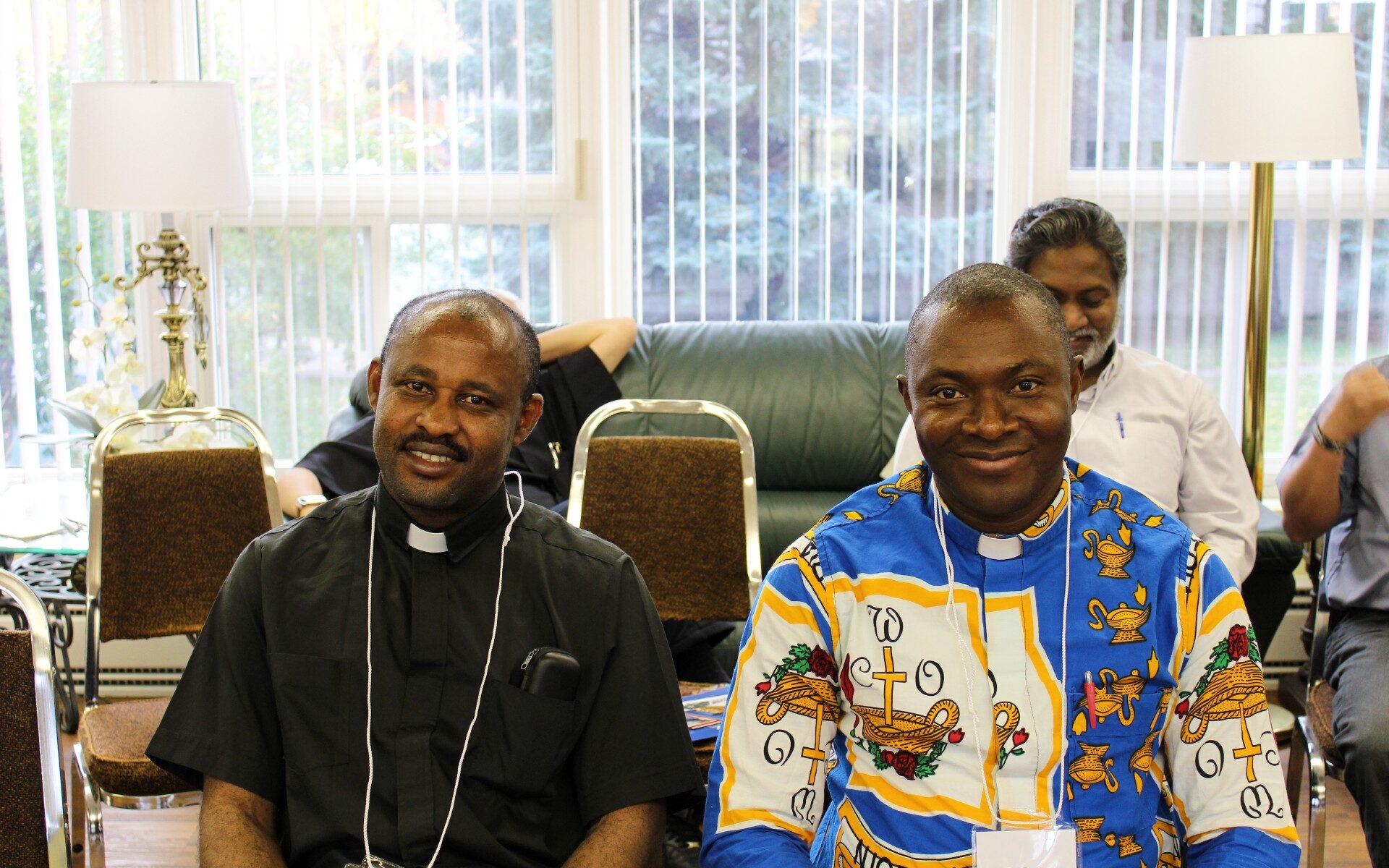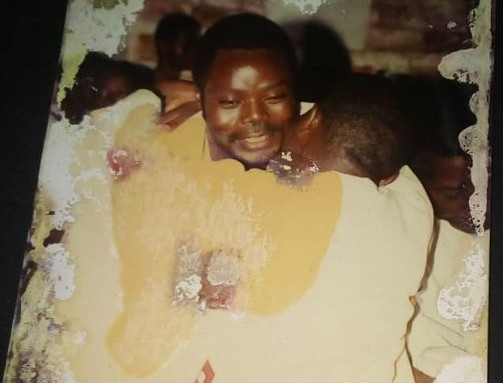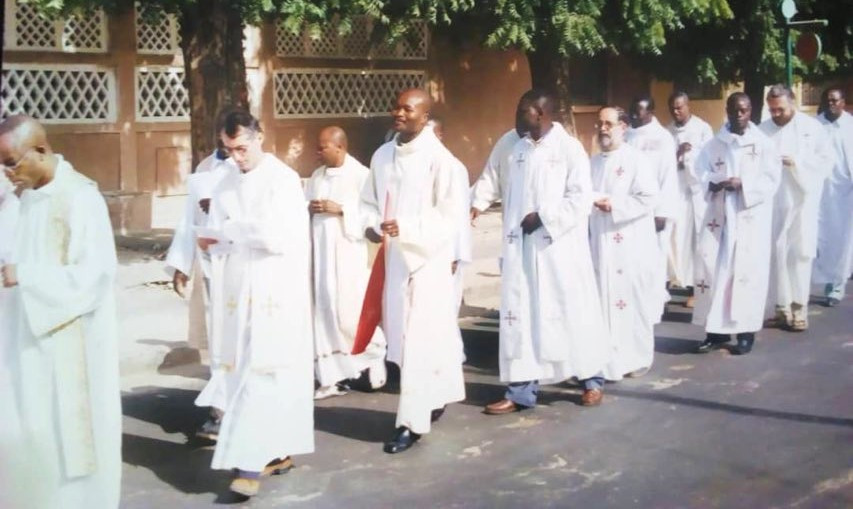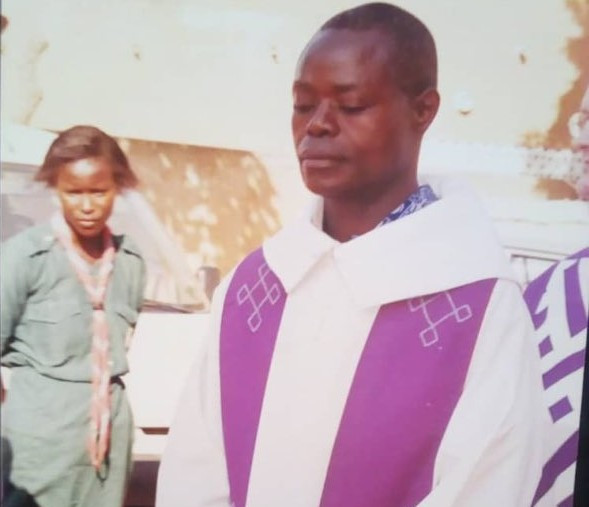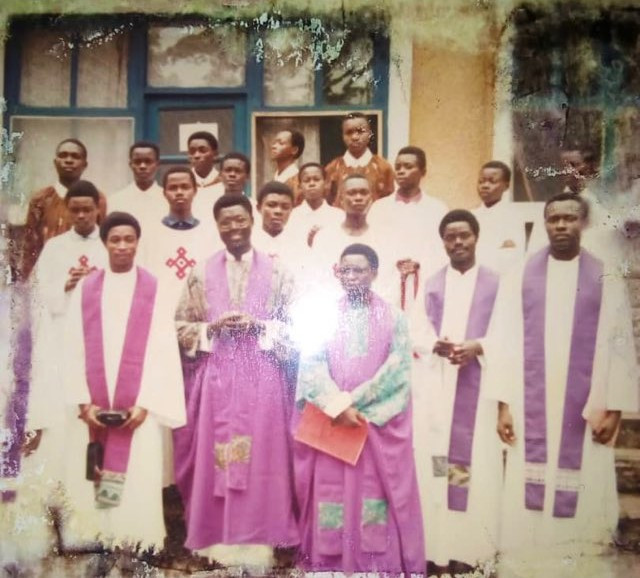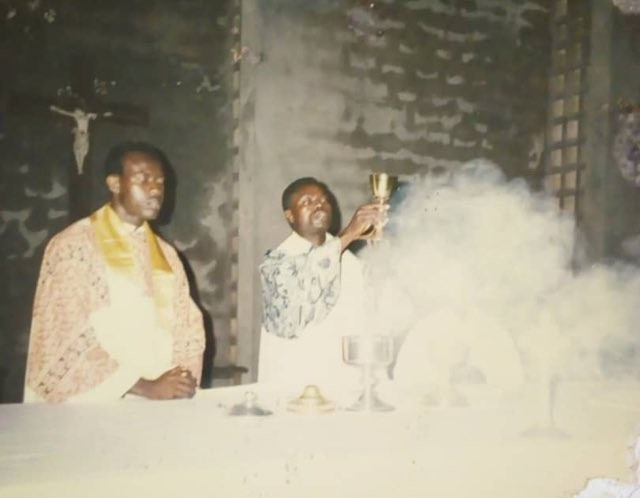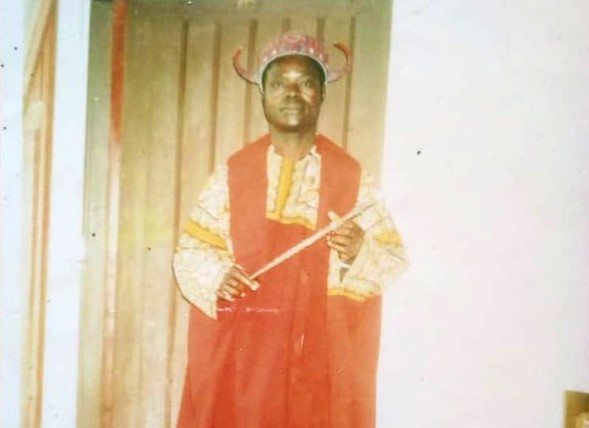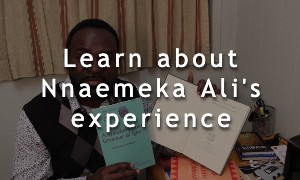A day in the life – Calling Canada home
Roman Catholic priests worldwide receive the same training and their job duties – celebrating religious ceremonies, baptizing members, providing spiritual counselling – are the same no matter where they live. That said they have to know and adapt to the customs of the communities they serve.
The Catholic faith is the same everywhere, but it is lived differently based on where you are, explained Léonard Kapia, a Congolese priest who now works in the Baie-Comeau diocese in Quebec. “The way that people practice [their religion] depends on their culture.”
“We have to adapt to all these differences; the ways that people see faith itself, the way that people perceive the church,” he said, adding that a person’s opinion of the Catholic Church depends a lot on how the church as an institution behaved in their country in the past.
Priests have to gage all of that and adjust their behaviour toward the people they serve accordingly, Kapia noted. “And to do that, we must obviously know their culture.”
A culture that can be, at times, incredibly different from their own.
Catholic celebrations in the Democratic Republic of the Congo look different than the ones here. Mass celebrations are very festive. People dance and sing even at funerals because the afterlife or the divine is seen as something that should be rejoiced. Photos © Léonard Kapia.
Setting foot in Canada for the first time
Kapia said he was lucky when he arrived in Quebec, because he had a good understanding of Western culture, having lived in Europe before. But that’s not the case for all foreign-born priests that immigrate here. Some experience a strong culture shock when their lifestyle changes significantly from what they were used to.
Anecdotes of cultural misunderstanding
Why are people honking?
Newman Theological College president Jason West recounts the driving mishaps of a Nigerian priest who participated in the enculturation program run by the college.
The wrong kind of food
Gatineau archbishop Paul André Durocher recounts the grocery shopping misadventure of a Burundian priest that he worked with.
There is no standard welcome package for migrant priests when they come to Canada. How well one adapts depends a lot on the support he receives when he arrives.
It is a lot easier for those who come as a student because they are placed in a university setting where they take courses with local students and often live in university residences or with other priests.
“It gives you a structure that allows you to slowly integrate,” explained Gatineau archbishop Paul André Durocher. “Because you’re with other students, you get a chance to chat with them and connections are made, and they can explain things to you.”
Similarly, priests that belong to a religious order will typically live in a communal setting with other missionaries from their congregation who can help them get settled in.
But for those who are hired directly by a diocese, feeling at home in Canada can be a lot harder because they don’t necessarily have support navigating the Canadian system. “They arrived and they were just plunked down into a parish,” said Durocher, speaking about eight Burundian priests he met last year who are working in the Mont-Laurier diocese. “Chatting with them I found out how difficult that is – there’s so many cultural differences.”
Sometimes priests decide to go back to their home country because they have too hard of a time adjusting to Canada or they are too homesick, Gaspé bishop Gaétan Proulx said.
A support contingent on location
In most of Canada, dioceses are left on their own when it comes to preparing migrant priests for their new life. Some do this better than others – often the ones with more experience doing it.
In Gaspé for example, a team of two priests is assigned to help the new recruit. The diocese also helps him get a car, health care insurance and explains how the parishes work. The priests also have communal dinners where the newcomer can make friends.
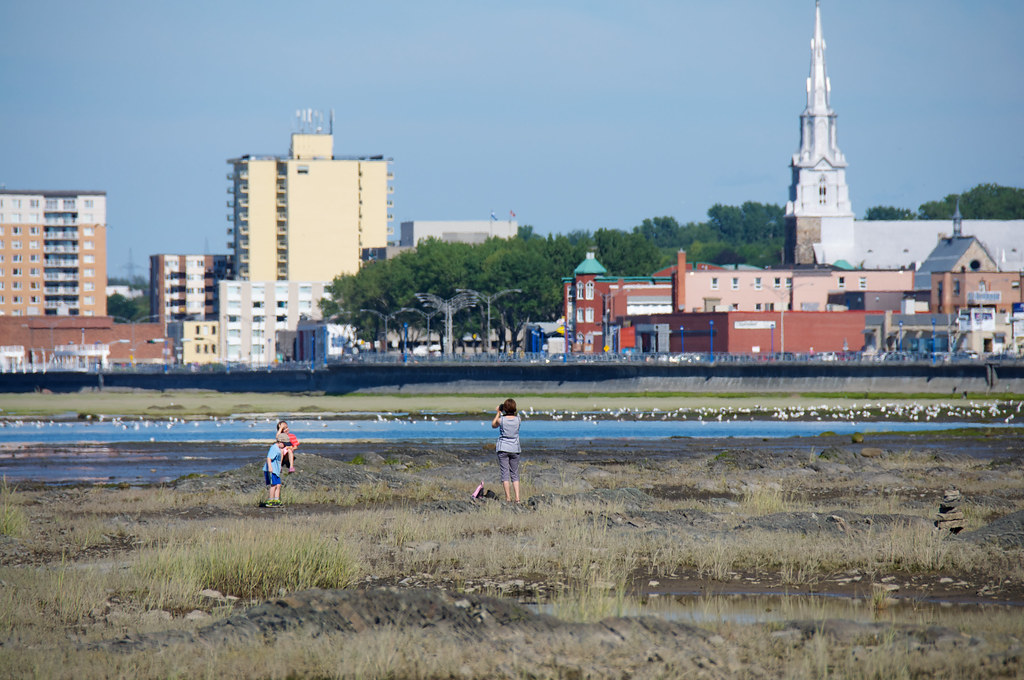
The Rimouski diocese has a welcome committee specifically meant for integrating and training new priests. The committee teaches them how faith is practiced in Quebec.
“Souriez les enfants/Smile !”
Photo © Bob August & licensed under CC BY-NC-SA 2.0
It is only in Western Canada that there is a more standardized approach. The Edmonton-based Newman Theological College offers a four-week enculturation program for migrant priests that are hired to work in British Columbia, Alberta, Saskatchewan or Manitoba.
The program, which is run once a year, has been in place for more than 10 years and trained more than 235 priests.
LISTEN: Newman Theological College president Jason West explains how the school’s enculturation program works
Top photo © Newman Theological College

